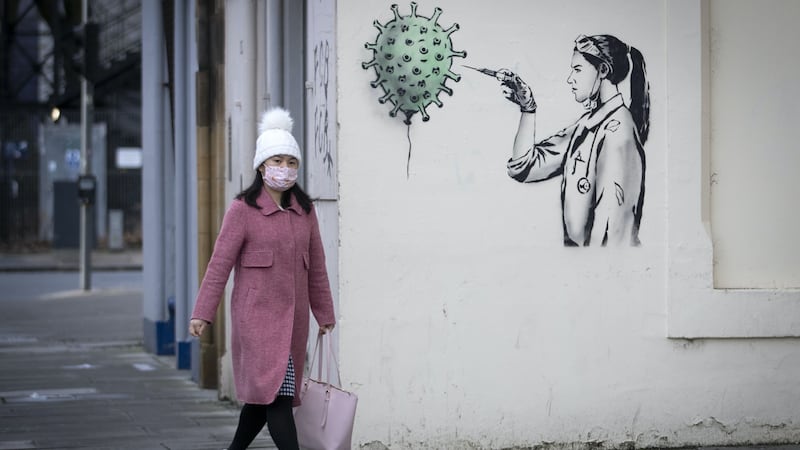Of all the years I might review in this column, the past year is by far one of the most consistently foreboding-filled I have experienced.
For almost a year there has been only one main topic of conversation – the coronavirus.
And no matter how often you might try not to speak about the virus, a conversation, short or long, will wind its way back to it.
Even though our collective mental health would be better off if we did not ‘like-a-hamster-in-a-wheel’ always return to it.
But there are understandable reasons why we do so both publicly and personally. Publicly, in that the behaviour of the virus and the behaviour of people dominates the media, social and general.
And personally, it has become a key component of the daily ritual of life and one’s conversations. Becoming almost normalised in much the same way we would speak about the joy of new arrivals; trace the daily progress of children to adults; the natural process of ageing, including death and the vast array of decisions our relatives and friends make which require an opinion from us.
The virus is personal, familial, community, national, global.
There is something innate about it which touches people of all ages, at their core, in a way that dictates the virus will continue to dominate our conversations for the foreseeable future.
Its existence disturbs the inner-most security that human beings rely on to get them through the highs and lows of life.
It threatens life’s equilibrium.
It threatens life’s order and human structure because it undermines the human instinct to protect one another and introduces a personal instinct to protect oneself – an instinct that has to be overcome when one is faced with a decision to help someone virus-positive even when to do so puts one’s life or health in jeopardy.
And it is in that inner psychological sanctum where the virus has been overwhelmingly defeated, as the instinct to protect the other takes control and an affirming and positive humanity prevails.
It is that positivity which is the real story of the past year and is a permanent threat to the features of the virus.
It can be seen at its best in the health service where workers at all levels risk health and life – be they doctors, nurses, porters, cleaners and administrative staff.
It was seen in the weekly public applause on the streets for health care workers that accompanied the first phase of the virus.
It can be seen in the new ‘front line’ workers: in retail and services and wherever the public needs the paid assistance of another to help them.
It can be seen in the volunteer spirit where neighbour is looking after neighbour; where communities are mobilised to look after the less capable.
It can be seen in the young people who have generally supported all of the restrictions and lockdowns and managed psychologically the trauma of it all even though their expectations and aspirations have been put on hold.
And the virus is shaping new world and local politics.
The safety of the planet is again at the top of the agenda and will remain there until it is properly protected for future generations because although we have experienced a random virus and it is shocking, thought-out human behaviour is threatening the very existence of planet earth.
Trump’s wanton mishandling of the pandemic played a crucial part in the election of Joe Biden whose policies on public health and the health of the planet will at least, hopefully, halt continuing damage.
And in the background to the commendable efforts that most governments in the world, including Ireland’s two, are making to eradicate the virus there is a nascent debate about the type of society we need post-virus and how that society is to be governed and especially how economies are to serve what could be a new world order.
A new world society which is people centred not material centred.
Where the values and beliefs reflect the humanity and care that has pierced like a shining light the dark cloud of the pandemic.
Where the public good, and public services are the measure of a nation’s wealth.
And if 2020 is to be viewed as the ‘year of the virus’ I think we can look forward to 2021 as the ‘year of the vaccine’.








